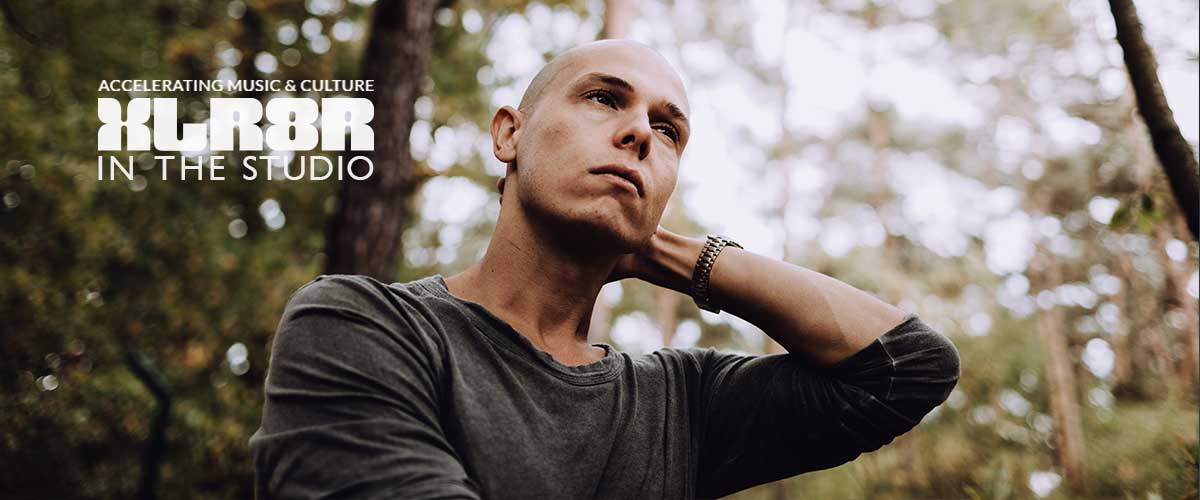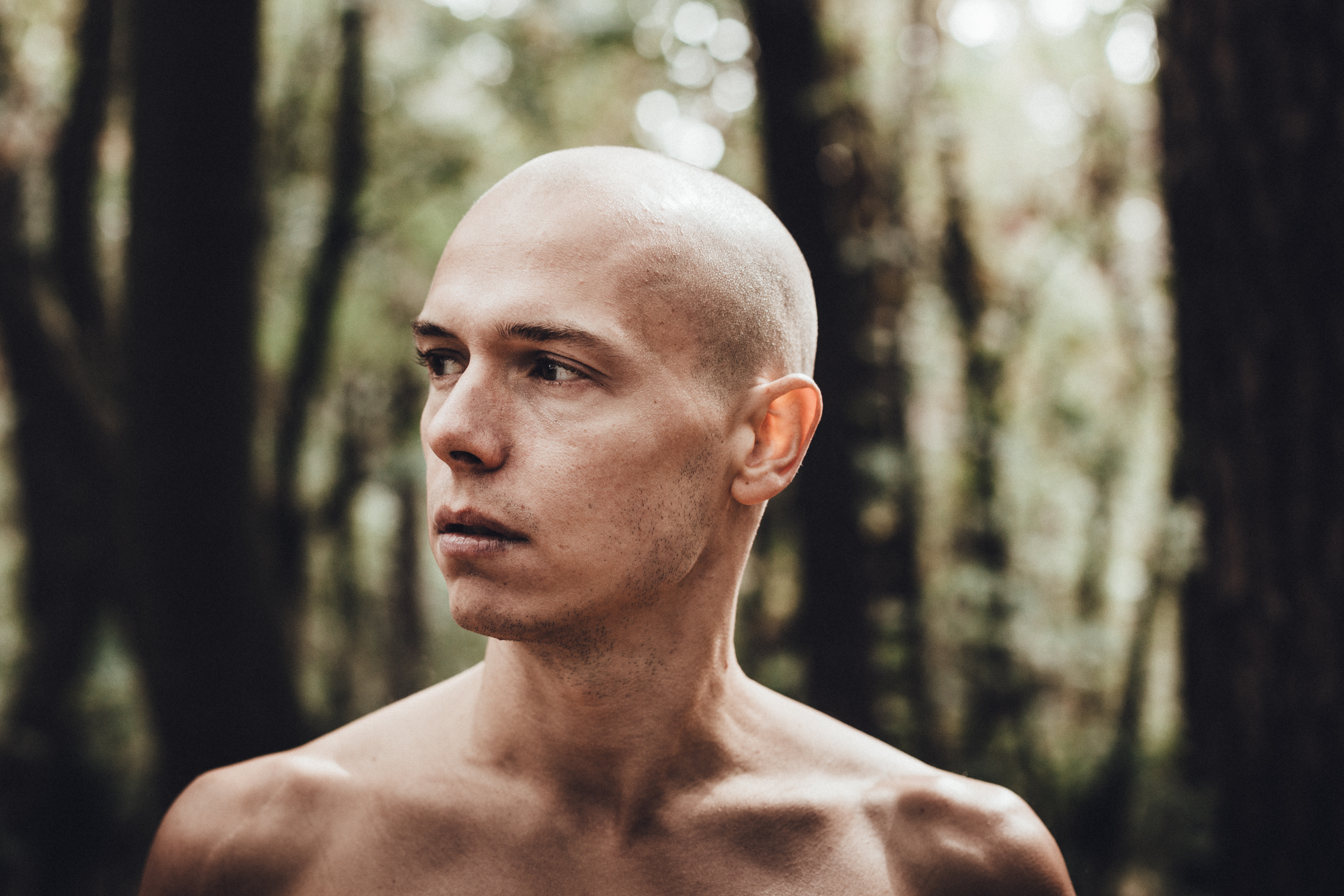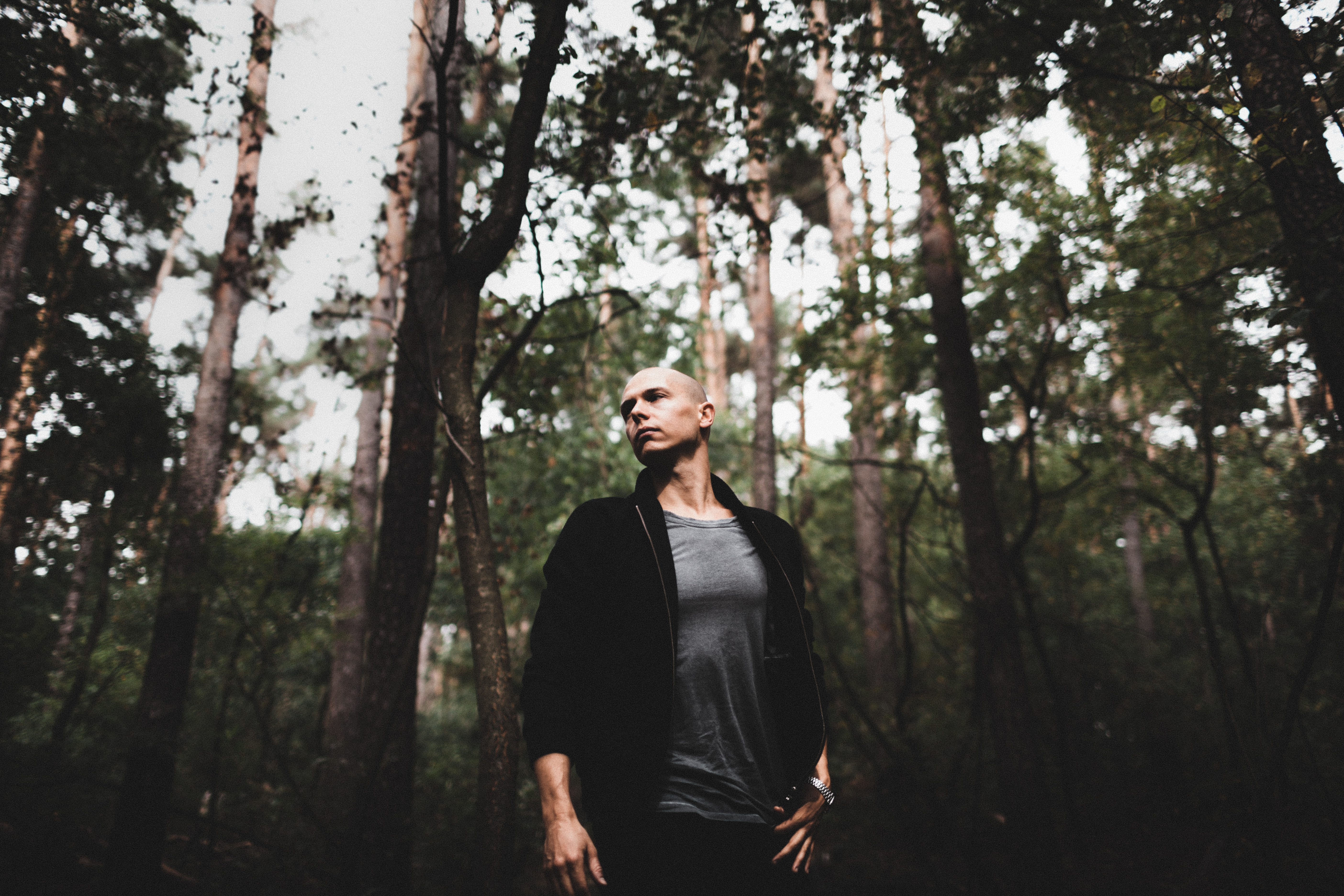In the Studio: Recondite
The German producer reveals the digital processes behind his latest album, 'Placid.'

In the Studio: Recondite
The German producer reveals the digital processes behind his latest album, 'Placid.'

Accounting for the fact that Lorenz Brunner produces using his laptop computer and Ableton only, it’s a bit a stretch to label the feature an “In the Studio.” Nonetheless, since his debut EP in 2011, the revered German live act, who has long since operated under his Recondite moniker, has released a string of well received EPs and LPs on leading imprints including Innervisions, Ghostly International, Hotflush and Dystopian. While the quality of his output is rarely in question, the quantity of it is remarkable: The last four years have each seen a new Recondite LP hit the shelves, the latest of which is Placid, his new album that was released earlier this month on Acid Test/Absurd Recordings. This, he says, is the direct result of “a steady period of creativity” in which he finds himself, supported by the fact that his digital production processes allow him to complete tracks despite a heavy touring schedule.
Placid is intended to be a sequel to On Acid, his debut LP from 2012. The reasons are obvious: Sonically speaking, the release sees Brunner reverting back his beloved 303 to produce something akin to acid techno, a sound that retains the deeply melodic and melancholic Recondite stamp—but quite different from the polished and perfected tones evidenced in Iffy, his 2014 release on Innervisions. As Brunner explains, he divides his production by genre, ranging from acid to techno to hip-hop, and reveals that the basic works of Placid can be traced back to before Iffy was even conceptualized. To learn more about the release and the specific production processes behind it, XLR8R sat down with Brunner on a cold winter’s afternoon in Berlin last week.
How long did it take to produce Placid? Since you use software, did you find yourself producing on the road?
Yeah, a lot of the finalization was done on the road in the last months before the release, but the process started about two years ago.
So you started producing the Placid stuff even before you released Iffy?
Some of it—about two of three tracks.
So it’s almost like you compartmentalize the acid stuff compared to your more techno-orientated material?
Yeah, that’s true. My acid work is almost like a little side project, I would say.
It is not what you started off with originally.
Yeah, the first stuff I released was the Plangent stuff, which was very a melodic and melancholic deep-house kind of thing. Then, I had four EPs on Plangent before I had the acid record.
How did you discover this penchant for acid music?
By listening to a track—a Donato Dozzy remix of a Tin Man track on Acid Test/Absurd Recordings. My former roommate Alex showed it to me and I really liked it. It sounded kind of fresh and different to the acid stuff that I have heard before, which was something that I never really liked to listen to due to the fact that I found it too aggressive—too quirky, loud and noisy. It’s just too hectic. So I listened to that and that was the first time that I thought I could maybe work on a track that only exists off 303 harmonies and melodies.
Do you think you will continue with acid, or do you think you will move away from it and back to the emotional, melancholic music that was symbolic of the Innervisions release?
I will definitely do acid tracks again, but at the moment I am working on different stuff. I’m working on a few hip-hop tracks right now just for fun, and I am doing an Innervisions EP—it’s already planned and finished. Also there will be an album next year with a completely different sound, more like IDM, electronica stuff.
“I like to layout my favorite vibe of emotions in different ways, but also I am not too open for too many experiments.”
There is obviously a Recondite signature, but you also like to experiment in different genres, don’t you?
Yeah, I like to layout my favorite vibe of emotions in different ways, but also I am not too open for too many experiments. I like to keep it in the areas where I feel comfortable. It’s stuff like minimal techno, deep house, hip-hop, and maybe orchestral music. Those are the areas where I feel most comfortable…and a little bit of techno, maybe.

You look at your discography and your output has been notable, with four albums and several EPs. The fact that you can produce on the road is probably is a factor in that, but would you say you are in a really rich vein of creativity at the moment?
Yes, I am. Luckily. At the beginning I was concerned that it would maybe go away, but somehow there is a a constant stream of ideas. Actually, ideas is the wrong words—it’s more about the motivation to keep being creative has just stuck with me. I always thought it might wear off at some point, especially when I started traveling a lot—but it hasn’t, up until now. Maybe it will at some point, but if it does that means I will just have to switch up my plans because that is the reason why I am here—why I am touring, why I am playing, why I am releasing music. This creativity is the whole thing that drives it.
For Placid, did you take time out of your touring in order to produce it, or was it just jamming—and you suddenly had enough material? Yeah, it was a process. Some of the tracks I had already completed two years ago, and I always come back to those projects. At some point I just had enough material, and then I just took some time out of touring to finalize the project by working on the mix-down, talking to the mastering engineer, and seeing if he has any ideas about what frequencies I can work on. That was really the finalizing process, and that took maybe one month—but I still was on tour at that time. During the week when I had no gigs, I had time to take care of that.
You really tour relentlessly and it’s impressive that you can balance the two.
Sometimes it’s not easy—but the last two years and how they have been with that many gigs has been too much. That will not be the routine going forward.
So you are planning on reducing your schedule?
Yes, I will definitely reduce the amount of gigs I play next year. I have to say, the last two years have been extremely exhausting. I tried to adapt my physical maintenance process to the circumstances. I have on tour only a very short amount of time allotted for regeneration, but I managed to adapt and stay reasonably fit—both physically and mentally. But now, after two year,s I feel that I need to change something. That is also why I plan on moving back to to Bavaria, back to where I come from. We will start fresh and build up a little new home there—because Berlin does not really let you, you know.
It can totally impede creativity.
Yeah, you can arrange the life circumstances in Berlin that allow you to have a certain contrast to your life that is all involved with touring, music, releases and business in general—but somehow I feel it is much much harder, for me at least, living an environment where the people really care about this stuff.
So you think having this line between your music and your everyday life is something that can actually increase your creativity?
I wouldn’t say it helps my creativity, necessarily. I actually realized that my creativity is not dependent on where I am and what I do, because there is strong idea inside of my head that drives the form or method of expression that I like. I can do a track in a hotel room in Rio, or in Berlin, or in lower Bavaria, because its not really about what surrounds me—it’s more about what I experience. For me, the biggest thing that has influenced my music is where I grew up—what I saw there, what I lived through. That is the main source of my inspiration because that is what shaped my character. It lives inside of me and that is not going to go away. I will always experience new stuff; I will do other shows and travel, meet new people, and in turn they will give me some inspiration—like the acid thing, for example. I hear an acid track, and then I decided that I wanted to do this. I will then put my favorite mood into this work and into this material. Right now, I don’t know what’s going to happen next. I am now back into a hip-hop phase. I have a lot of beats but I don’t really know what to do with them. Besides that, I am working on this electronica, classical-music project where I also try to use my favorite atmosphere with different instruments and different arrangements. I don’t think the creativity level will change too much because of this move to Bavaria.
When you produce a track, is it a case of jamming—as in, do you mess around with Ableton and just wait until you find a loop that resonates with you? Or are the tracks conceptualized before they are produced?
No, not at all. Each track basically comes from scratch and I’ve never planned what is going to happen. I don’t really know how it goes to be honest—and that’s maybe it. I will sit down, usually make a loop and build from there. Sometimes I will make ten loops a day and not look at them for a month, and then by accident I will go back to one and I will say, “Oh, okay that is actually worth arranging.” Another day I will create a loop and I will immediately feel like I have to arrange it. There is not a lot of jamming involved; it’s more like the beat grows and then I play the melodies above it while it is still a loop. Usually in the arrangement process, the bass at the core of the track is already completely done, so the idea of the track is laid down. The arrangement is just the way of building up things and enhancing certain moments that are consisting in the loop, and the loop usually acts as the fullest moment of the track.
When you were producing Placid, did you produce several tracks at the same time, or did you finish one and then simply move onto the next?
Usually it is several at the same time, and it is not even divided by genre. Normally I will do like a hip-hop track, a techno track and an orchestral track at the same time, and then I go back and forth within the projects.
What plugins do you use for Ableton?
Besides the 303 for my acid stuff, I use ABL. I mostly use the internal plugins from Ableton, and I use some of the Reverb stuff from Tal Audio—it’s like one guy who is making the plugins in Switzerland. He is doing a really nice tape delay, and there isn’t really a good tape delay on Ableton. Other then that I really work on a lot of effect chains within the Ableton effects. Once you start building up chains, there is so much you can do and that gives me more than enough possibilities to create some individuality.
So you don’t use Max for Live?
No, I don’t. I’m not good enough in engineering. I think I am better in using what is there than creating instruments.

How did your collaborative track with Tale Of Us come about?
Matteo sent me an empty beat—it was just one single track. Then, I just played an acid melody on top and sent it back to him. He said, “Yeah, let’s do that,” and then he sent me the stems of the track and I added a few hi-hats and played the melodies again. Then came the mix-down and it was done. It all happened pretty fast; we basically just sent files back and forward.
Are most of your tracks done in a day, or do you sometimes work on something and polish it for weeks or months?
I normally do take a lot of time to polish stuff up—especially when it comes to releasing and finalizing. I always come back there and fix it up a bit. But it’s really different on each track. Sometimes a track is done in a day, and others take a bit more time. It also depends on me making it and thinking that it is finished—and then I play it out later and I find things that just simply are not good enough. For example if it is a club track, then I have to go back and maybe even change the kick drum or something like that. It is an ongoing process.
Do you play your tracks to people before you release them, or do you feel confident enough in yourself to know when a track is complete?
I do show it to very close people—like private friends, family, and private business partners.
Placid is supposed to be a sequel to the first album you did, On Acid. Why is it a sequel and not just an entity in its own right?
Somehow its picking up on the first acid record. It’s not as dark and moody anymore; it’s a little brighter and more uplifting. It kind of keeps telling the story. Also, the reference to the acid sound is just so obvious in regards to the first album. Immediately after I finished On Acid, I had already started to work on some of the first sketches for some of the first tracks that are on Placid. It is as if you write a book, and then you add a second part—and after the first one was out, you immediately start the second part of the book.
Can you see your maturation as a producer, when looking at Placid and looking at On Acid?
I know what you mean, but I think it a very subjective thing. If I were to tell you now that I had gained skills regarding mix-downs or frequency work, somebody could tell me that his personal taste prefers what is on On Acid. He would say, “Oh, yeah, that’s completely wrong,” while someone else would say, “The stuff on Iffy was much better than your On Acid stuff, so you didn’t really gain any skills,” then the third guy says, “You’ll never sound as good as what’s on Placid.” It’s a really subjective matter. What I can add to this though is that I am always trying to develop. In my mind, there are always steps forward.
“My motivation to make music is definitely internal. It’s a way of self expression—it’s a way of relief or a release for me.”
Is that a key motivation in your progression as an artist—this idea that you want to develop your skills further? Or is it more internal? My motivation to make music is definitely internal. It’s a way of self expression—it’s a way of relief or a release for me. It’s a way of venting my mind, and that is the most important thing about making music, for me.
Iffy was generally very well received, but there were comments that it was a bit too polished. Do those comments affect your production process, or is feedback absent from your mind when you are producing?
While I am producing, all feedback is completely absent. But when I read it, I certainly acknowledge it. Also, with these comments regarding Iffy, it is also very true. It was definitely more polished and clean sounding, but it’s just a way of doing a mix-down differently. I was just trying to create a different type of musical ambiance—it’s just a different approach. So I am actually glad that they realized the difference!
It seems as though you’ve managed to maintain a steady flow of music, even before the debut album. Have there been any periods where you struggle to sit down with Ableton and produce a track?
Somehow, not really. If I have the time to sit down and if I feel like it, something always comes out—although it might be good or bad. I have a lot of unreleased tracks on my hard drive that I don’t find worthy of releasing, although someone else might say, “Of course it is worth releasing them,” and then sometimes I release stuff and then people tell me it is total shit that I should not have released. Usually though, if I have time to sit down, there is some sort of output. I don’t know—maybe that is strange somehow. Maybe when I have kids and don’t have the time anymore, this might change. I just like doing it, and I think that is the main thing about it. I like sitting there and working on beats and as long as I like it, something is always going to happen. When I stop liking it, I’ll have to switch up my plans.

